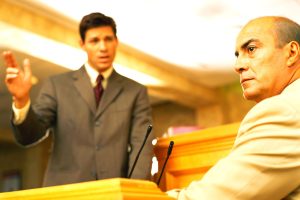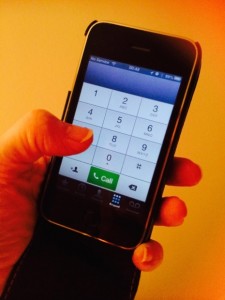South Florida criminal defense attorney Richard Ansara was recently interviewed by the South Florida Sun Sentinel for an article about a proposed Florida bill that would increase the severity of stalking offenses involving the unauthorized use of wireless tracking devices. As a criminal defense lawyer representing South Florida clients accused of domestic violence, Richard Ansara is uniquely qualified to weigh in on proposed legislative change.
As it stands, F.S. 934.425 outlaws the unauthorized installation of tracking devices or tracking applications – including surveillance software on phones. With very few exceptions, you cannot install a tracking device on someone’s phone, computer, car, person, etc. without their consent. To do so is a second-degree misdemeanor, punishable by up to 60 days in jail and a $500 fine.
A new Florida bill would bump the offense up to a third-degree felony, which would make it punishable by up to 5 years in prison and a $5,000 fine.
Proponents of the law say the current law gives police little power to properly investigate complaints because they lack the authority to obtain a search warrant per F.S. 933.02 that could help ascertain who bought the device, downloaded the software, or is using the tracker to keep tabs on a victim. If the offense of unauthorized tracking were increased to a felony, then police would have greater authority to obtain a search warrant.
A big problem Criminal Defense Lawyer Richard Ansara has with that is it addresses the wrong thing. If the only reason to make unauthorized use of a tracking device a felony as opposed to a misdemeanor is so that police can obtain search warrants, it begs the question: Why not modify the law on search warrants? Why should the penalty for unauthorized use of a tracking device be substantially greater than for an actual physical assault on someone?
As Ansara told The Sun Sentinel:
“People do desperate things in relationships, specifically when they are trying to determine whether infidelity is occurring. Some may decide to drop an AirTag in a spouse’s vehicle and or clothing to try to get to the bottom of what is happening in their relationships. Is this correct behavior? No.
“Should this behavior be punished more harshly than someone who straight up punches their spouse in the face? Absolutely not. That person would only be charged with a misdemeanor battery.” Continue reading
 Fort Lauderdale Criminal Attorney Blog
Fort Lauderdale Criminal Attorney Blog





